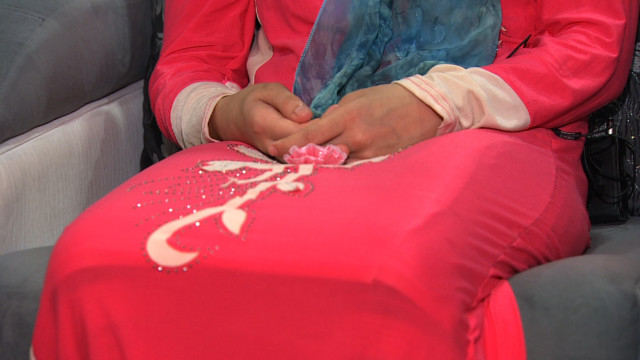
Iraq: For over an hour, the girl spoke softly in short sentences. Rarely making eye contact, she tightly wrapped a piece of string around her finger. She looked broken; a tragic casualty of the latest horror to unfold across her blood-soaked land.
Jana was 19 years old, in her final year of high school, with dreams of becoming a doctor. Then, one day last August, Daesh arrived in her village and her world collapsed.
At first the militants demanded that members of her Yazidi religious minority convert to Islam. Then, separating the men from the women, they stripped villagers of their jewellery, money and mobile phones.
What happened next is documented in a United Nations report. Daesh “gathered all the males older than ten years of age at the local school, took them outside the village by pick-up trucks, and shot them.”
Jana’s father and eldest brother are believed to be among the dead.
For the women, a different fate lay in store. Jana and younger girls like her were separated from the older women and bussed to the city of Mosul. There they were put in a large house with hundreds of other young women. The men of Daesh visited the house, choosing up to three or four girls at a time to take home with them.
Dr Nazand Bagikhany, who advises the Kurdistan Regional Government on gender issues, says the women were subjected to physical and sexual violence “including systematic rape and sex slavery.” Like cattle, they were taken to markets in Mosul and in Raqqa, Syria, even carrying price tags.
Dr Bagikhany, who is also a researcher at the University of Bristol’s Gender and Violence Research Centre believes that Daesh kidnapped more than 2,500 Yazidi women. A list compiled by Narin Shaikh Shamo, a Yazidi activist based in Iraqi Kurdistan, contains the names of at least 4,601 Yazidi women currently missing.
Shamo says that, in the month following the abductions, she was receiving calls and messages from up to 70 different hostages a day. Now, she cannot reach a single hostage.
Last weekend in northern Syria I interviewed an imprisoned and horribly battle-scarred 19-year old Daseh fighter. He described how Daesh attracted fresh recruits with the offer of cash and “wives.” Now, talking to Jara, this made complete and horrifying sense.
The Kurdish authorities say they have rescued around 100 Yazidi women from Daesh, some by paying ransoms via Arab tribesmen intermediaries. Dr Bagikhany said all of these rescued women appear to have been systematically raped, likely by more than one man. Thousands remain hostages.
Jana was deeply traumatised. I asked her what she would say if she met the 70-year old man who took her home and ordered her at gunpoint to convert to Islam. “I wouldn’t want to tell him anything. I’d just want to kill him,” she told me.
Jana’s mother and two brothers are still being held hostage by Daesh. Her dream of becoming a doctor is long forgotten.
The writer is a senior international correspondent with CNN.









